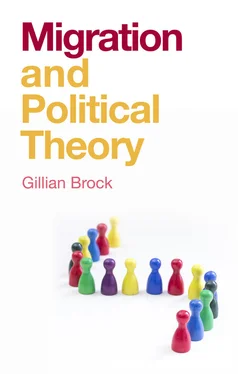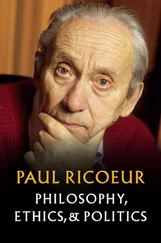With respect to the argument by analogy, we can’t establish whether there is a right to exclude by appealing to associations like golf clubs since the associations are different. States are not like golf clubs. One key point of difference is that when we exit a marriage, golf club or job, we do not have to have another similar association to enter into in order to exercise the right to exit. But leaving one state without another one willing to grant admission would render one stateless, which is a perilous condition in our contemporary world. So Cole argues that there are relevant dis-analogies in the case of individuals’ and states’ freedom of association.
Moving on to his second line of argument, Cole believes we should situate the immigration debate in the relevant context and that must include the history of slavery and colonialism perpetrated by European powers. Colonialism distorted local economies to serve the needs of the colonizers and their metropolitan economies. By the time of independence, many of those nations were left with large labor forces and insufficient capital to make that labor productive. The result was a large reserve army of cheap labor and resources that could be utilized by colonizers, even once independence was granted.
How are slavery and colonialism relevant to migration today? In several ways, according to Cole. First, our global migration regime serves to maintain present global patterns of inequality of power and resources. Our present system of global power is strongly shaped by colonial history. It emerges from a period in which European nations controlled migration regimes. Members of European nations were the ones who had the “power to travel the world and exploit resources and people, and to determine the flow of resources and people to particular places to further their own interests” (Cole 2011: 221). The point is that:
a group of powerful nations used their power to determine the shape and direction of global movements of people and resources, and this played a role in enabling them to dominate and exploit others in deeply immoral ways, and that this is exactly what is happening under the present global order. Although the patterns and direction of movement may have changed in some ways, and while there may be new powerful agencies at work, the basic problem remains the same: the global migration regime of the colonial period was a system of domination and exploitation, and the current global migration regime operates in the same way. (Cole 2011: 222)
So once we appreciate this history, we can see that in reality, when we talk about current immigration debates, we are not really discussing just the rights that one liberal state has to control its borders. Rather, we are considering a block of powerful liberal capitalist states maintaining a system that prevents “the entry of the poor and the unskilled, while at the same time seeking those it considers economically valuable from the ‘outside,’ and maintaining more or less free movement between themselves” (Cole 2011: 222). If we consider the European Union, we see that it operates in the ways Cole suggests: there is free movement for citizens of member states and those whose skills or wealth make them attractive new members. But the poor and unskilled who seek entry will not find this easy, given the barriers imposed. In these sorts of ways, our migration regimes serve to maintain extreme inequalities in global wealth and power.
For Cole, the unjust relationships between nations in the developed and developing world are not ones of resource inequality but rather inequalities in power. To change the fundamental injustices, we must reform “the power structures of domination and exclusion that have been sedimented through the historical processes of colonialism and post-colonialism” (Cole 2011: 222). It is primarily the inequality of power that is problematic and that has and can give rise to problematic resource distributions. So focusing exclusively on the distribution of resources rather than the distribution of power is inadequate. We must change power structures and therefore control of the global migration regime.
In addition to this analysis and critique, he also offers a positive proposal, based on his view that there is a universal human right to freedom of international movement, “a right that is so basic that it overrides, except in extremity, a state’s right to prevent people from crossing its border” (Cole 2011: 160). He makes a case that immigration rules should become matters of international law and global governance.
His argument begins by noting that freedom has value in itself. So, if we think freedom is an important value, then we need some fairly weighty reasons to be in play if we are to restrict it. And Cole believes that in the case of international movement, such reasons should be very weighty indeed. In developing his account of what constitutes significant reasons, he appeals to an international set of principles, the Siracusa Principles, which specify when the right to emigration may be restricted. He argues that immigration should be treated in the same way as the Siracusa Principles regulate emigration. In the latter case, the right of emigration is not absolute; states may limit it in times of extreme emergency. The Siracusa Principles outline the principles to be used in determining what counts as a public emergency that threatens the life of a nation and will count (as Article 12 specifies) as a “relevant threat to national security, public order, and public health or morals” (Cole 2011: 304). So as the ideas are developed, any restrictions on emigration must be (i) ones provided by law; (ii) necessary to achieve the purpose for which they were put in place; (iii) proportionate to those purposes; and (iv) “the least intrusive instrument amongst those that might achieve the desired result” (Cole 2011: 305).
Note that Cole is not insisting that the right to immigrate be absolute. Rather, he aims to combat the situation where states need not justify their control over immigration at all or indeed any of their immigration-related decisions. Cole is proposing that the same principles that govern justification of emigration-restriction decisions could be used to justify immigration controls. In his view, such a regime would mean that immigration controls “would become the exception rather than the rule, and would stand in need of stringent justification in the face of clear and overwhelming evidence of national or international catastrophe, and so become subject to international standards of fairness, justice, and legality” (Cole 2011: 306). The system of multilateral oversight that he recommends would provide an important accountability check on states’ decisions.
As we have seen in this chapter, two works in political theory have been especially influential in contemporary theorizing about migration. Michael Walzer (1983) defends the right of states to limit migration and, in response, Joseph Carens (1987) argues for generally open borders. We also discussed many of the other prominent theorists who have weighed in on these issues, including arguments from Christopher Heath Wellman, Phillip Cole, David Miller, Ryan Pevnick, Mathias Risse, and Michael Blake and we see how a lively contemporary debate continues on these core themes.
As we have also seen, people defend a range of views under the description of “open borders.” Many of the accounts characterized as “open borders” are really more accurately described as arguing for “fairly open borders” because they permit states to exclude (for instance) known terrorists or to close their borders when a situation of welfare overload has been reached or is foreseeable. We could generally see all the types of arguments we have been considering as positioned along a continuum from “more closed” at one end to “more open” at the other. Even those commonly aligned with an open borders position allow some permissible constraints. And even those who defend reasonably strong rights to close borders argue that there are important constraints on state rights to exclude, such as those presented by requirements concerning how to treat refugees or guest workers, all topics to be studied in greater detail in other chapters of this book.
Читать дальше












